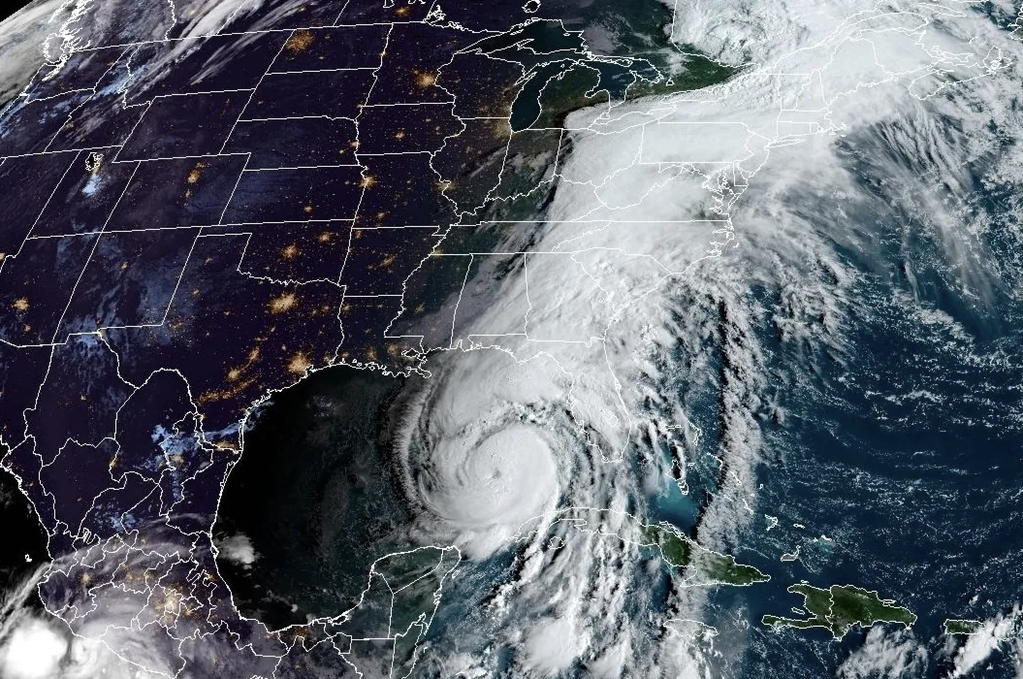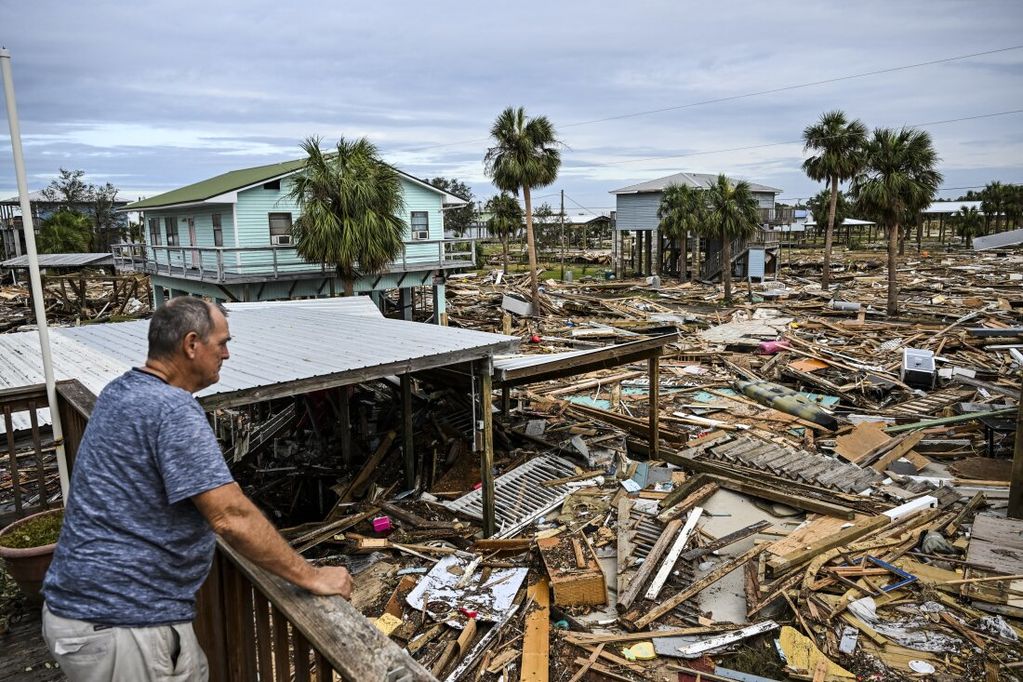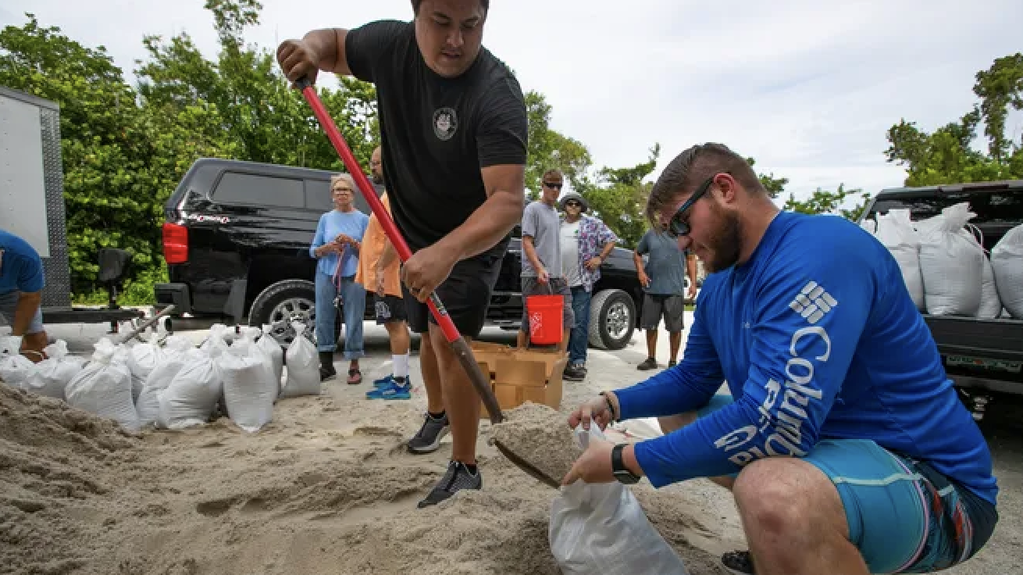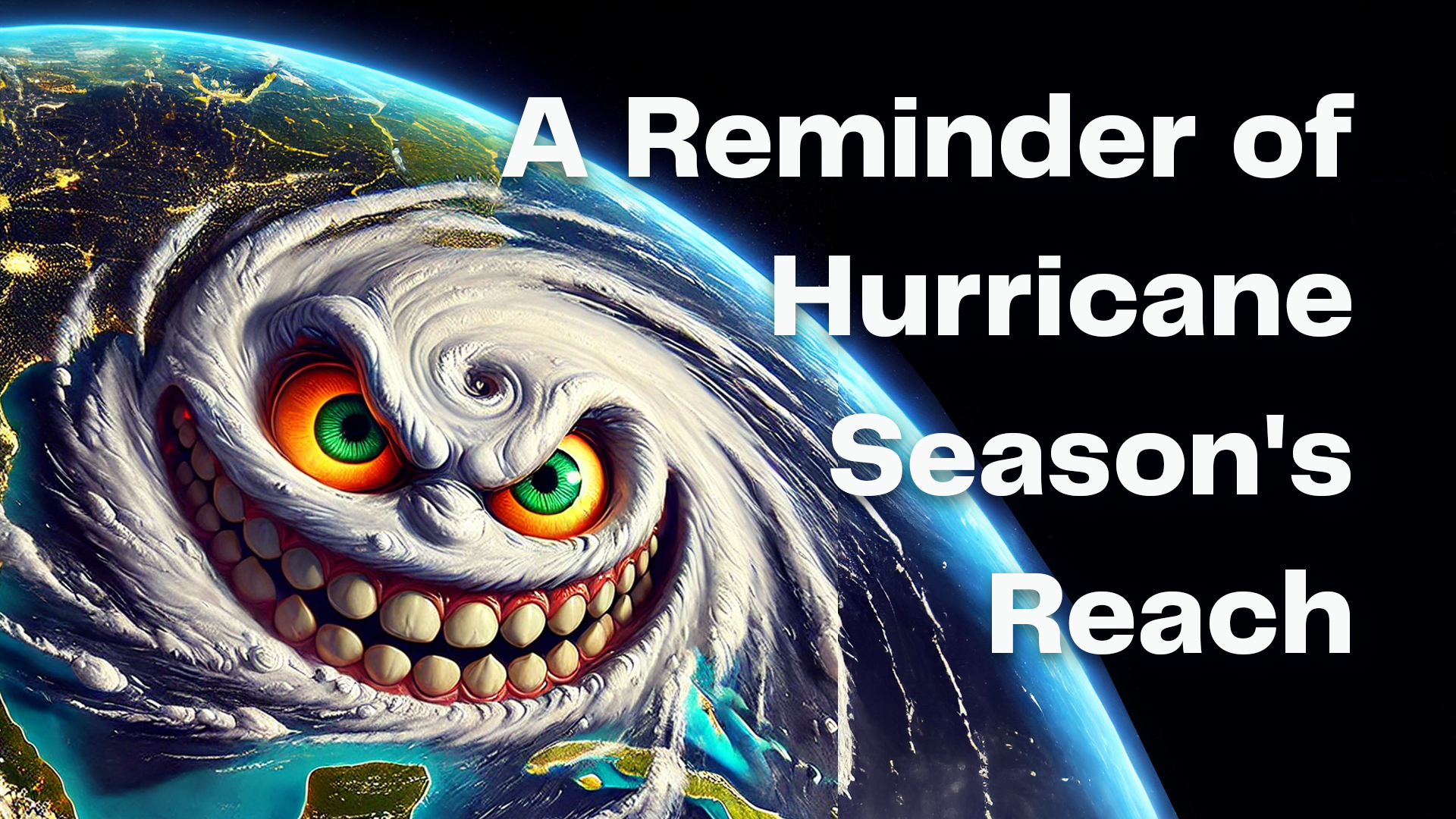Northeast Florida recently had a close encounter with Hurricane Helene, a powerful Category 4 storm that made landfall in the Big Bend region of Florida. While our area was spared the worst of its impact, the storm’s devastating effects were felt in other parts of the state and country, serving as a stark reminder of the long and unpredictable nature of hurricane season.

Hurricane Helene, from NOAA
The Unpredictable Nature of Hurricanes
Floridians are known for their resilience and sometimes, a seemingly casual attitude towards hurricanes. The concept of “hurricane parties” has become a cultural phenomenon, where people gather to ride out the storm together, often with a mix of camaraderie and defiance. However, it’s crucial to remember that hurricanes are serious weather events that can pose significant risks to life and property.

David Hester inspects damages of his house after Hurricane Helene made landfall in Horseshoe Beach, Florida, on September 28, 2024. (Photo by CHANDAN KHANNA / AFP) (Photo by CHANDAN KHANNA/AFP via Getty Images)
The Importance of Preparedness
Hurricane season is technically in its height now, and it’s essential for residents and visitors in Northeast Florida to be prepared. Here are some tips and contact information to help you stay safe:
Create a Hurricane Kit
- Water: one gallon per person, per day (3-day supply for evacuation, 2-week supply for home).
- Food: non-perishable, easy-to-prepare items (3-day supply for evacuation, 2-week supply for home).
- Flashlights and extra batteries.
- Battery-powered or hand-crank radio (NOAA Weather Radio, if possible).
- First aid kit.
- Medications (7-day supply) and medical items.
- Multi-purpose tool, like a Swiss Army knife.
- Sanitation and personal hygiene items.
- Copies of personal documents (medication list and pertinent medical information, proof of address, deed/lease to home, passports, birth certificates, insurance policies).
- Cell phone with charger.
- Family and emergency contact information.
- Extra cash (ATMs might be inoperable).
- Extra fuel for generator and car.
Stay Informed
Monitor local weather and emergency updates from reliable sources such as the National Weather Service and local emergency management offices.

Residents prepare for Helene, image via Augusta Chronicle
Secure Your Home
- Board up windows and secure outdoor objects.
- Chlorinate your pool and turn off any electrical connections to the pool.
- Turn your refrigerator and freezer to the coolest setting.
- Lower any outside antennae, masts, or towers.
- Fill your bathtub and any other large containers with water for washing, cleaning, and to flush the toilets.
Evacuation
- Know your evacuation zone and the nearest shelters.
- Make arrangements with a friend, relative, or neighbor to go with them to a shelter or to evacuate if you do not have a car.
- Contact a friend or family member in another area to let them know where you are going, when you are leaving, and who is with you.
Contact Information for Northeast Florida Residents
- Florida Division of Emergency Management (FDEM): 1-800-342-3557.
- National Weather Service Jacksonville: 1-800-499-1594 ext. 1.
- Florida Public Radio Emergency Network: 89.9 WJCT-FM.
- Red Cross Shelter Locations: Text SHELTER and your ZIP CODE to 43362.
- Special Needs Shelters: Call (904) 255-3110 for more information.
Current Outlook for the Rest of Hurricane Season
The Atlantic hurricane season officially runs from June 1 to November 30. With September being the peak month for activity, AccuWeather predicts that September could see up to 10 named storms. The season is expected to remain active through October into November. Areas such as the Texas coast, Florida Panhandle, South Florida, and the Carolinas remain at an elevated risk of landfalling hurricanes during this period.
A Message from O.N.E. Florida Group
At O.N.E. Florida Group, our goal is to ensure everyone is prepared and safe during hurricane season. While Floridians are known for their resilience, it’s essential to take hurricanes seriously. Hurricane Helene’s impact is a stark reminder of the potential damage these storms can cause. We are here to help in any way we can by providing you with necessary information and resources to stay safe.
Conclusion
Northeast Florida dodged the worst of Hurricane Helene; however, its impact serves as a reminder of the importance of preparedness during hurricane season. By understanding historical patterns, staying informed about current forecasts, and taking necessary precautions, residents can better protect themselves from potentially devastating effects. Let’s take this opportunity to prepare together!
Additional Tips for First-Time Hurricane Season Residents
- Stay Informed: Monitor local radio broadcasts for emergency information and have a NOAA weather radio on hand.
- Secure Your Home: Board up windows securely; ensure outdoor objects are safe; chlorinate pools if applicable.
- Evacuate Safely: Know evacuation zones; arrange transportation if needed; inform friends/family about plans ahead of time.
- Prepare for Aftermath: Exercise caution when returning home; avoid downed power lines; check food/water supplies carefully post-storms.
This article is brought to you by O.N.E. Florida Group—committed towards ensuring safety through preparedness education!


